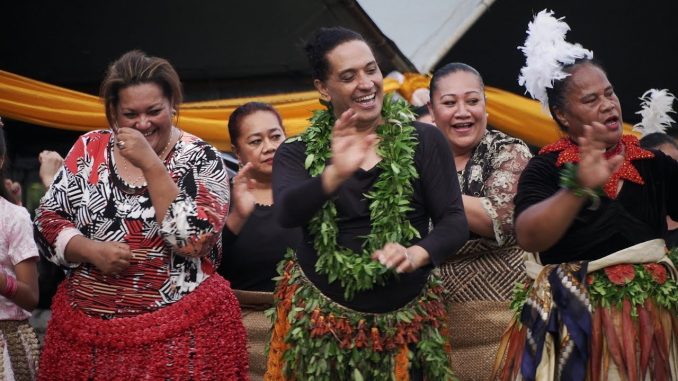
- Transgender people in Tonga are locally known as ‘kafaleiti’ or ‘leiti’ which roughly means lady-like and refer to people who dress or behave in a feminine way but identify neither as male or female.
- Transgender and other non-binary individuals remain to be marginalized in the way they participate in the community.
- Cross-dressing and sodomy are acts punishable by up to 10 years of jail time according to the country’s laws.
In a country where same-sex acts and cross-dressing are considered crimes, transgender people in the Kingdom of Tonga continue to fight for awareness on their struggle for their rights and equality.
According to the transgender news article from ABC and posted on April 16, trans women vowed to no longer stay silent on the need for increased visibility in society.
Life as ‘leiti’
Locally known as ‘kafaleiti’ or ‘leiti’ for short which roughly means lady-like and refer to people who dress or behave in a feminine way but identify neither as male or female, transgender and other non-binary individuals remain to be marginalized in the way they participate in the larger community.
Joey Joleen Mataele, a ‘leiti’, explained that their roles were deemed limited.
“The role of leitis in our society is more of a housewives role, a domestic worker, we’re known in the public eye in our churches and for helping the youth programs, but when it comes to our personal choices, that’s when the barriers start,” she said.
Mataele is affiliated with the Tongan Leitis Association of which she is the president. Her group had been the subject of a documentary called Leitis in Waiting to be released in England. The film tracks the life of trans women in this conservative nation made up of many islands in the Pacific.
“I think this is a great achievement for us to be able to do this. And it’s a tool that we will be able to use,” she remarked about the documentary. “It’s been years of dreaming that our story would be recorded and be heard and be distributed to the world.”
Recalling the young Mataele, Tonga’s Princess Salote Lupepau’u Tuita said, “One memory my mother has is of when Joey was a toddler and he had very, very feminine features and really, really curly hair. So my mother had a life-sized doll as well and she said ‘you’re prettier than my doll’ so she put the dress of her life-sized doll on Joey and put his hair in ringlets and would take him around. It was completely, it was you know, it wasn’t to mock him or anything, she just loved it. Since then, he’s always been that special and close to her.”
Gender identity and struggles
However, Mataele considered herself marginalized in the community even with her close relationship with the royal family and the members of the high society.
Transgender people like her, who could find jobs as caretakers and workers, remained to be outlawed and shunned. Worse, they may even be sent to prison.
Cross-dressing and sodomy are acts punishable by up to 10 years of jail time according to the country’s laws. And on the film, her group announced their intention to decriminalize them for the first time.
“I think it’s time to talk about it, we cannot be silent any more, I mean if we keep silent about this, it’s not healthy, it’s not mentally and physically healthy for all of us,” Mataele commented about the issue on transgender rights.
Their increasing visibility in society and their request for legislative reforms to reconsider same-sex acts and cross-dressing ran in conflict with a rising wave of religiosity in the country. Spearheaded by televangelists who received funding abroad, there had been renewed efforts against members of the LGBT community. s
“It’s creating an ugly division that I don’t think had really existed in Tonga prior to the emergence of this kind of approach,” Joe Wilson, the producer and director of the documentary, said.
For Mataele, she would remain transgender and a churchgoer.
“The more they preach against us, it doesn’t really make me angry, it actually makes us all a stronger person,” Ms Mataele stated. “At the end of the day it’s just a small island. You cannot move without anybody noticing and if they think they can move us out to little secluded islands, because of our sexual orientation or gender identity, I think they need to wake up.”
Leitis in Waiting
Wilson, in describing the creation of the film, said that he was drawn to the country’s duality of conservatism and transgender identity.
During the premier of the documentary in London, Mataele received the Commonwealth Points of Light Award, an honor bestowed by the government of United Kingdom and supported by the Queen, for her use of song, humour and dance to promote issues which affect the transgender community.
Despite not being recognized in Tonga, the award was dedicated by Mataele for the people who supported her in the fight for transgender rights.



Be the first to comment